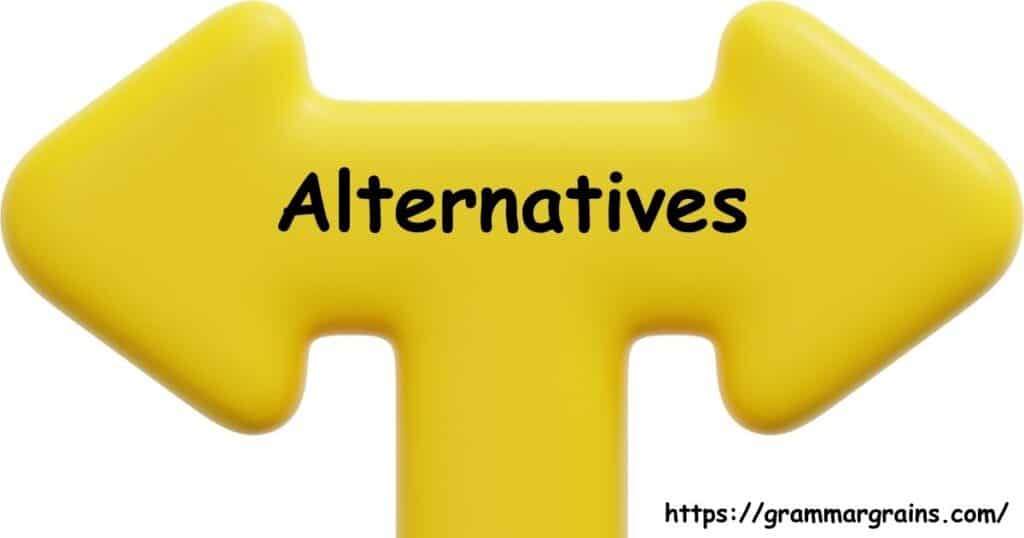“Please let me know if this works for you” is a widely used phrase that acts as a polite invitation for feedback or confirmation. It communicates a willingness to accommodate others’ schedules, needs, or preferences, fostering mutual respect.
This phrase is frequently seen in professional emails, workplace communication, and personal conversations.
It serves as a bridge to ensure clarity and agreement, particularly when making arrangements or seeking approval.
Is It Professional/Polite to Say “Please Let Me Know if This Works for You”?

Imagine you’re collaborating on a project and propose a timeline for deliverables.
Instead of dictating the schedule, you could write,
“Please let me know if this timeline works for you.”
This phrasing demonstrates flexibility and consideration, encouraging the other party to feel comfortable sharing their thoughts.
Its polite tone ensures a respectful dialogue, creating an environment where feedback flows freely.
Yes, this phrase is both professional and polite, making it suitable for business communication and casual exchanges alike.
In a professional setting, it demonstrates respect for the recipient’s time and preferences.
In emails, this phrase often acts as a courteous way to finalize plans, request confirmation, or seek input on a proposal.
For example, when scheduling a meeting, saying,
“Please let me know if this time works for you”
allows the recipient to share their availability without feeling pressured.
Moreover, this phrase is especially effective in cross-functional team settings where collaboration is essential.
By using this phrase, you ensure that all stakeholders feel heard and included.
It reflects an empathetic communication style that aligns with best practices in professional communication.
For instance, Harvard Business Review highlights the importance of empathetic leadership in fostering trust and enhancing workplace relationships.
However, the phrase should be used thoughtfully.
Overuse might make your communication feel generic.
For example, repeatedly writing
“Please let me know if this works for you”
in every email might come across as insincere.
Instead, varying your language with alternatives like
“Does this align with your schedule?”
or
“Would this time be suitable?”
can help maintain a more engaging and personal tone.
Advantages and Disadvantages

Advantages
One of the greatest strengths of this phrase is its adaptability.
Whether you’re scheduling a meeting, proposing a project timeline, or confirming details, it fits seamlessly into various scenarios.
For example, when planning a workshop with multiple participants, saying,
“Let me know if this arrangement works for everyone”
keeps the tone collaborative and inclusive.
This phrase also conveys professionalism and respect.
It gives the recipient the autonomy to share their preferences, which is essential in fostering mutual respect.
For instance, when communicating with clients, this phrase shows that you value their input and are willing to make adjustments to meet their needs.
According to a report by Forbes, respect and flexibility are critical to building long-term business relationships.
Another advantage is that the phrase simplifies communication while maintaining a polite tone.
It avoids unnecessary complexity, making your message clear and actionable.
For example, saying,
“Can you confirm if this time works?”
is more effective than a lengthy explanation of why you need a response.
Disadvantages
Despite its versatility, this phrase has limitations.
One challenge is its potential vagueness.
For example, in situations that require urgent action, writing,
“Please let me know if this works for you”
might delay the decision-making process.
In such cases, using more direct language like
“Can you confirm by the end of the day?”
is more effective.
Cultural differences can also impact how this phrase is perceived. In some cultures, direct communication is preferred, and this phrase might come across as overly cautious or indirect. For instance, a recipient in a fast-paced corporate environment might find “Please confirm if this is suitable” more straightforward and actionable.
| Advantages | Disadvantages |
|---|---|
| Polite and professional tone | May lack urgency in critical situations |
| Encourages collaboration and feedback | Overuse can feel repetitive |
| Suitable for various scenarios | Cultural nuances may affect interpretation |
Alternatives

20 Professional Ways to Say “Please Let Me Know if This Works for You”
- Could You Confirm if This Is Suitable for You?
Example: “We’ve scheduled the meeting for Friday at 3 PM. Could you confirm if this is suitable for you?” - Please Advise if This Arrangement Is Convenient.
Example: “The draft report will be sent by Thursday. Please advise if this arrangement is convenient.” - Let Me Know if This Time Works for You.
Example: “We’re planning the client call at 11 AM tomorrow. Let me know if this time works for you.” - Does This Schedule Suit Your Needs?
Example: “The event is planned for next Monday. Does this schedule suit your needs?” - Would This Time Work for You?
Example: “We’re considering Wednesday for the workshop. Would this time work for you?” - Please Confirm If This Proposal Is Acceptable.
Example: “We propose delivering the project in two phases. Please confirm if this proposal is acceptable.” - Does This Align With Your Schedule?
Example: “We’ve arranged a preliminary meeting for next week. Does this align with your schedule?” - Can You Verify If This Works?
Example: “The shipping timeline is set for next month. Can you verify if this works?” - Please Share Your Availability.
Example: “We’d like to finalize the meeting details. Please share your availability for this week.” - Let Me Know Your Thoughts on This Arrangement.
Example: “We’ve booked the venue as discussed. Let me know your thoughts on this arrangement.” - Would You Be Available at This Time?
Example: “We’re aiming for a Friday afternoon meeting. Would you be available at this time?” - Please Inform Me if This Is Okay With You.
Example: “The adjusted payment terms are attached. Please inform me if this is okay with you.” - Does This Meet Your Needs?
Example: “The updated project plan includes your suggestions. Does this meet your needs?” - I’m Open to Other Suggestions.
Example: “We’ve set the deadline for next Tuesday. I’m open to other suggestions if needed.” - Can We Check for Conflicts Before Proceeding?
Example: “The timeline for phase two overlaps with another project. Can we check for conflicts before proceeding?” - I’m Happy to Adjust Based on Your Preferences.
Example: “The itinerary includes a morning session. I’m happy to adjust based on your preferences.” - Please Confirm If This Plan Works for You.
Example: “The updated rollout schedule is attached. Please confirm if this plan works for you.” - Would This Arrangement Be Feasible for You?
Example: “The delivery date is moved to early March. Would this arrangement be feasible for you?” - Let Me Know If This Option Is Suitable.
Example: “We’ve booked a meeting room for Monday morning. Let me know if this option is suitable.” - Does This Timing Work for Everyone?
Example: “The team has agreed on a 10 AM start time. Does this timing work for everyone?”
Variety in language keeps communication fresh and engaging.
Instead of relying solely on
“Please let me know if this works for you,”
consider using alternatives that align with specific contexts.
For instance,
“Could you confirm if this arrangement is suitable?”
works well when finalizing plans with clients or colleagues.
Similarly, “Would this time work for you?”
Is ideal for scheduling meetings or discussing availability.
Here’s an example: Imagine you’re organizing a client presentation and need to finalize the timing. You might write, “Please share your availability for next week so we can schedule accordingly.” This alternative not only conveys respect but also encourages a prompt response.
In scenarios where adjustments are likely, phrases like “I’m here to adjust to your preferences” or “Let me know if another time suits you better” show a high degree of flexibility.
Such phrasing is especially effective in building trust and maintaining strong professional relationships.
9 Formal Alternatives to “Does That Work for You?”
For formal settings, consider using phrases that reflect professionalism and precision. For example, “Can we check for conflicts?” is suitable when planning a multi-team meeting. Similarly, “Would it be okay with you?” conveys politeness while seeking confirmation.
- Would This Be Acceptable to You?
Example: “The proposed contract includes a delivery timeline of 10 business days. Would this be acceptable to you?”
This phrase is formal and conveys a respectful tone, often used in contractual or decision-making scenarios. - Could You Confirm If This Is Suitable?
Example: “We have arranged the meeting for next Thursday at 2 PM. Could you confirm if this is suitable?”
This alternative works well in professional emails or discussions, ensuring clarity without sounding too casual. - Is This Arrangement Feasible for You?
Example: “The project deadline has been extended to March 15. Is this arrangement feasible for you?”
This phrasing demonstrates empathy and flexibility, making it perfect for project discussions or scheduling changes. - Would It Be Convenient for You?
Example: “We’d like to hold the presentation on Friday afternoon. Would it be convenient for you?”
This polite option is ideal when asking about someone’s availability or preferences for a specific time or event. - Please Confirm If This Works for You.
Example: “The attached itinerary includes all the necessary details. Please confirm if this works for you.”
This phrase strikes a balance between formality and simplicity, making it versatile for emails or verbal communication. - Can We Proceed With This Plan?
Example: “The updated marketing strategy aligns with the discussed goals. Can we proceed with this plan?”
This alternative is direct yet respectful, often used when seeking approval to move forward with a proposal. - Does This Align With Your Priorities?
Example: “We’ve adjusted the project scope based on your feedback. Does this align with your priorities?”
This phrase conveys a collaborative tone, particularly useful in discussions involving strategy or alignment. - Would This Option Work for You?
Example: “We’ve secured the conference room for 10 AM tomorrow. Would this option work for you?”
This alternative is formal yet approachable, suitable for professional scheduling or logistical arrangements. - Is This Suitable From Your Perspective?
Example: “The team has suggested a phased rollout for the new software. Is this suitable from your perspective?”
This phrase emphasizes consideration for the recipient’s viewpoint, making it effective in collaborative or stakeholder discussions
Another effective alternative is “Does this meet your needs?”
which is particularly useful in client communication.
For instance, after proposing a service plan, you might say,
“Please confirm if this arrangement meets your expectations.”
This phrasing not only invites feedback but also demonstrates your commitment to providing value.
Context-Specific Phrases
Tailoring your language to the context enhances clarity and engagement.
For example, when proposing a meeting, saying,
“Does this align with your schedule?”
reflects respect for others’ time.
Similarly, when requesting feedback on a project, phrases like “I would appreciate your feedback on this” encourage thoughtful responses.
Consider a scenario where you’re coordinating with a remote team across different time zones.
Using a phrase like “Please share your availability so we can finalize the timing” ensures that all team members feel included.
This approach fosters collaboration and prevents scheduling conflicts, which are common in distributed teams.
In client-facing roles, empathy plays a crucial role in communication.
For instance, after delivering a draft proposal, saying,
“Does this arrangement work for you, or would you prefer another approach?”
shows that you value their preferences and are willing to adapt accordingly.
This level of attentiveness can significantly enhance client satisfaction.
Tips for Writing Effective and Polite Emails

Polished email communication is an essential skill in today’s professional landscape.
To ensure your emails are both effective and polite, focus on three key elements: clarity, tone, and structure.
For example, when confirming a meeting time, writing
“Can you confirm if this timing works for you?”
keeps the message concise and actionable.
Another important aspect is tailoring your message to the recipient.
For instance, when addressing a senior executive, using a phrase like
“Would this arrangement be convenient for you?”
conveys professionalism and respect.
On the other hand, when communicating with peers, a casual tone such as
“Does this time work for you?” might be more appropriate.
Always practice active listening by acknowledging the recipient’s preferences and feedback.
For example, if they suggest an alternative time, respond with
“Thanks for letting me know. The new time works perfectly for me.”
This demonstrates attentiveness and reinforces a positive tone.
Closing Phrases for Emails
Strong closing phrases leave a lasting impression and encourage further engagement. For example, saying, “Feel free to reach out if you have any questions” creates an open line of communication. Similarly, “Don’t hesitate to contact me for clarification” reassures the recipient of your availability.
In follow-up emails, polite reminders such as
“Please confirm your availability at your earliest convenience”
or
“Let me know if you require additional details”
maintain professionalism while prompting a timely response.
These phrases are particularly useful in fast-paced environments where efficiency is key.
Conclusion
In professional and personal communication, “Please let me know if this works for you” serves as a versatile tool for fostering collaboration, respect, and clarity. By using alternatives and tailoring your phrasing to the context, you can enhance your communication skills and build stronger relationships.
Whether you’re proposing a meeting, requesting feedback, or sharing availability, the right language can make all the difference. Effective communication is not just about what you say but how you say it. Always strive for clarity, empathy, and professionalism in every interaction.
FAQs
- What does “Please let me know if this works for you” mean?
It’s a polite way to ask for confirmation or feedback on a proposal or arrangement. - Is it professional to say “Please let me know if this works for you”?
Yes, it’s widely accepted in business communication for its respectful and collaborative tone. - What are alternatives to “Please let me know if this works for you”?
Alternatives include “Does this align with your schedule?” or “Would this time work for you?” - When should I use “Please let me know if this works for you”?
Use it when proposing schedules, confirming arrangements, or seeking feedback in professional or casual settings.

Taila Lucy, an expert content writer at Grammar Grains, brings 4 years of experience crafting engaging pieces on grammar. Her work delves into synonyms, antonyms, slang, puns, and poetry, helping readers master English with creativity and flair.






